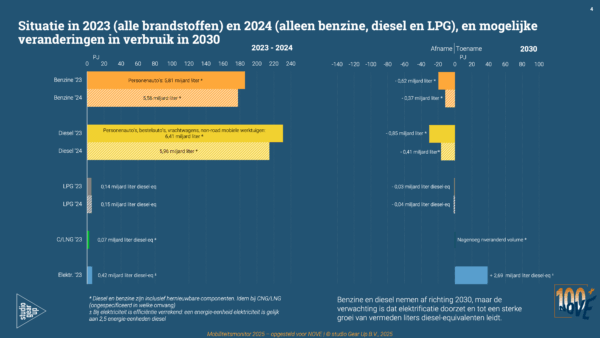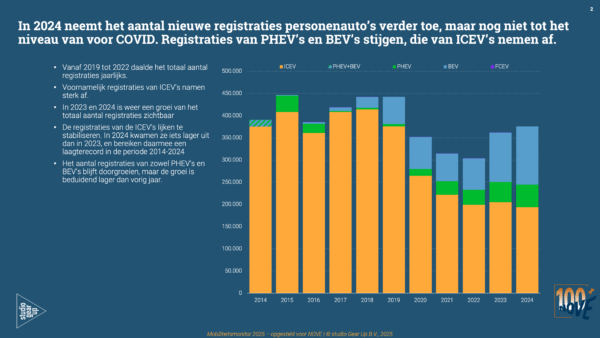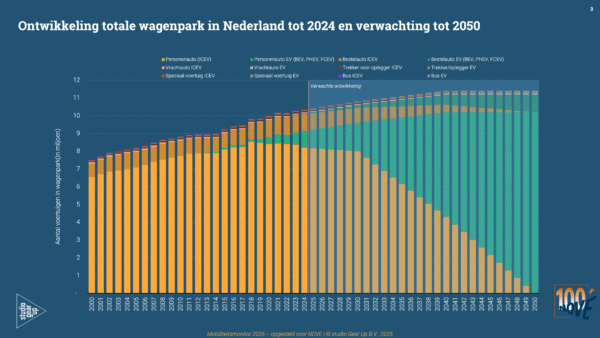For: NOVE – Netherlands Business Association for Independent Fuel Suppliers
[January – March 2025]
For NOVE, the Netherlands Business Association for Independent Fuel Suppliers, studio Gear Up developed an annually recurring Mobility Monitor that provides insights on vehicle fleet volumes development and indicates how the liquid and gaseous fuel demand, as well as the deployment of electricity, in The Netherlands transport sector is expected to grow or decline over time.
The Monitor focuses on two main issues:
Vehicle registration and fleet developments
Overview of the most recent information on new registrations and vehicle fleet volume for passenger cars, vans and heavy duty vehicles in the Netherlands (in 2024) and expected developments following existing and adopted policy towards 2030, 2035 and 2050.
Changes in expected transport fuel and energy carrier deployment
Expected volumes of various fuels and energy carriers in the Netherlands transport market, based on these sales and fleet developments and based on the existing and adopted policy measures to mitigate the climate impact in the sector. the fuel scenarios provide overviews of the expected situation in 2025, 2030 and 2035.
The Mobility Monitor helps the members of NOVE to estimate their next year’s fuel and energy carrier volumes.
As soon as NOVE has published the 2025 Mobility Monitor on their website we will link to the concerned website.







